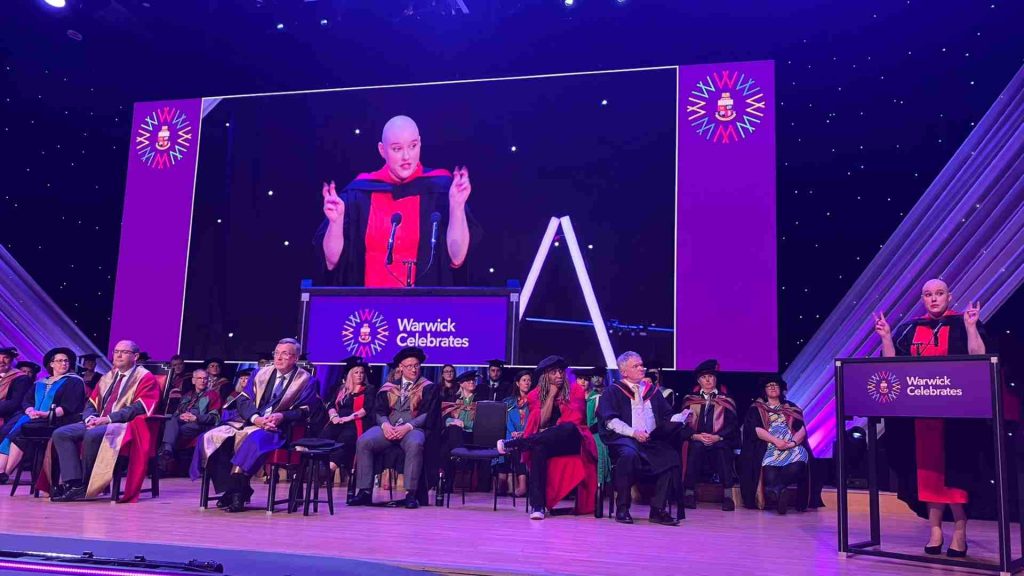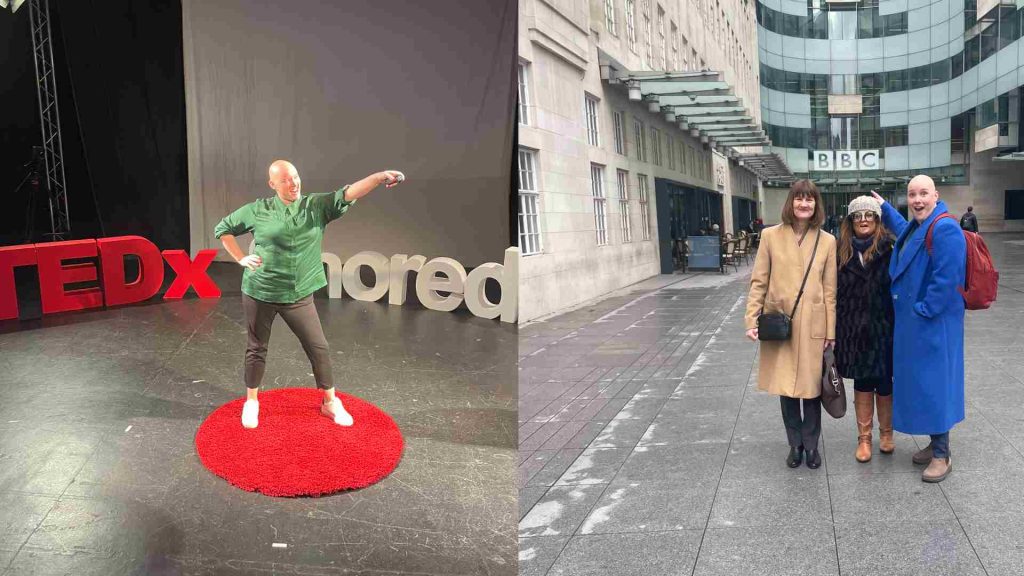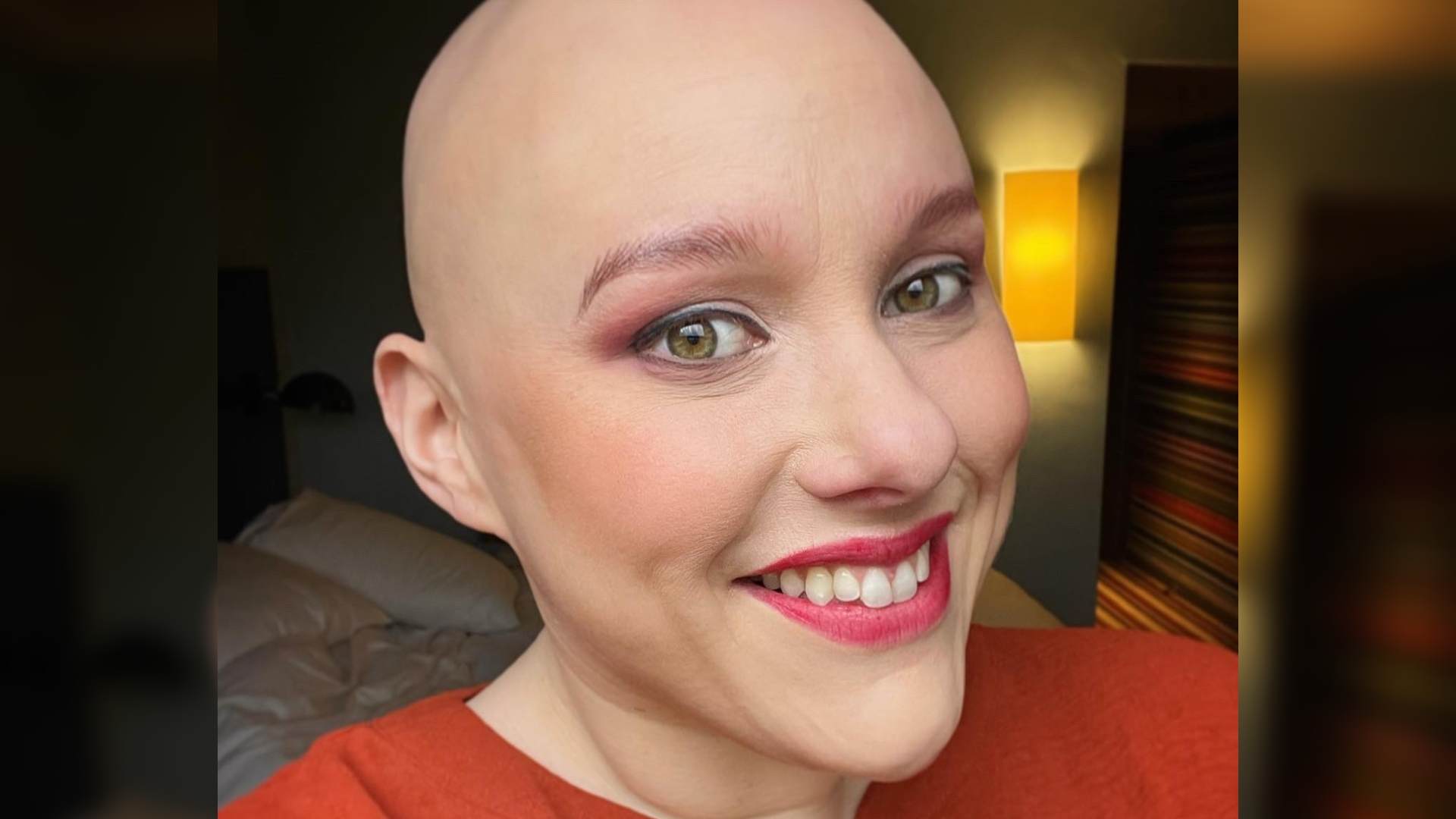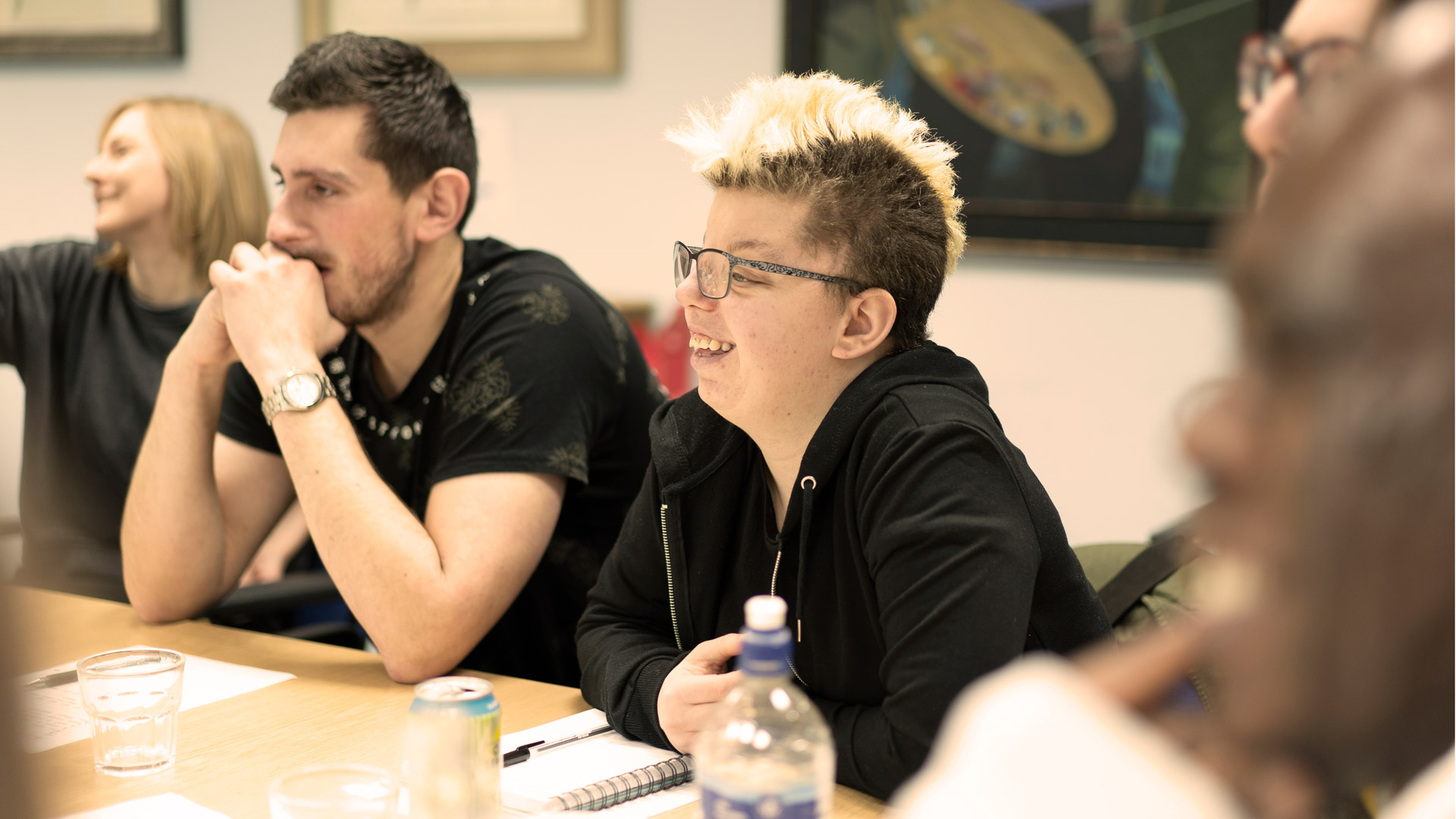I’m Laura and I’m an ambassador for Changing Faces. I started my campaigning journey when I realised that not only was I struggling physically because of my alopecia – years of wig wearing was causing harm to my eczema-prone scalp – but also emotionally.
During the pandemic, after 17 years of living with alopecia, I started to reflect on the impact my visible difference was having on me mentally. The anxiety I felt surrounding my self-image had always been overwhelming, stopping me from saying yes to so many activities and opportunities in fear of “revealing” my difference. During lockdown, I started to see that the problem wasn’t me, the problem is with the attitudes of society towards any sort of visible difference. I wasn’t afraid to be bald, I was afraid because I knew I would be judged for looking different.
This revelation made me want to make things better for both me and for others in the visible difference community. That’s when I found Changing Faces and my journey as a campaigner began.
Can I be a campaigner?
“Campaigner” sounds like an impressive title, but we all have a voice that we can use in the hope of influencing others. Whether you’re standing in front of TV commissioners or speaking out on social media, you are a campaigner.
Recognising the value of your voice is the first step to becoming a campaigner. Changing Faces instilled that in me and gave me the opportunities to be heard. From here, I started to develop my own network and used this to further my advocacy work.

Laura speaking at Warwick University
Do I have to learn to “network”?
Every single social scenario is an opportunity to talk about the cause you’re passionate about. Don’t be afraid of the “cringe”, just get chatting! Professional networking can be very dry, and I’ve found that leading with my experience of visible difference and my campaigning work often brings much more energy to a conversation than just talking about my day job.
It can feel strange opening up to strangers about your story, but generally people are interested to hear it and willing to learn. While they might not always say the right thing in response, you’ve got them thinking, and that’s so important. From there, they might go on to visit the Changing Faces website or your social media channels to learn more. There’s no need to be strategic about networking (although of course you can be). The most important thing I have found is that you make connections and emphasise your passion. Your experience is your strength, so lean into it in whatever way feels comfortable.
Do I need a massive social media following?
Social media can be a great way to build your network too. I initially started using Instagram to record my confidence journey and shout about Changing Faces’ campaigns. My hope was that people would be interested in my story and go on to educate themselves further. The more present I was on social media, the more my following grew, and this helped give weight to my campaigning. Don’t get me wrong, a social media following isn’t vital to be a successful campaigner, but it can open doors and get your name in front of the right people.
Even consistently liking and commenting on the posts of people you admire or want to connect with can lead to amazing opportunities. The goal is for people to remember your name and know what you stand for.

Laura embraces all types of campaigning opportunities
Social media has enabled me to create a community of like-minded people who support each other, which is lovely. However, sometimes it can feel like I’m preaching to the converted, with many of my followers already supporters of the visible difference movement. Campaigning is all about behavioural change, so it is necessary to break through and reach a cold audience too.
As you’d expect, I’ve found that my more “controversial” content is what triggers a reaction from a cold audience. For example, for Halloween 2023 I went on Radio 1 Life Hacks to speak about costumes and the impact they can have on people with visible differences. Morticia Addams was mentioned by someone who had written in to say “people with long black hair don’t feel victimised by her costume”, so I rolled with the theme and spoke about Uncle Fester, and how people were using bald caps to portray him.
This caused backlash on my social media, with people angry that I’d suggested that donning a bald cap was discriminatory against people with hair loss when they are just “having fun”. I was aware it wasn’t my strongest example, and I was happy to admit that. I took these negative comments as an opportunity to clarify the points made during my interview. While I couldn’t convince everyone, I did have several positive conversations with people, who might not have agreed with my example, but found they did agree with the sentiment behind it.
What if people don’t agree with my message?
I’m an emotionally reactive person by nature, so I have to walk away from certain comments to allow me to process how best to respond to them. You need to be aware of both your reputation and that of the cause you represent. I tend to write a response and then re-write it to ensure it’s measured – the best option is to kill them with kindness. It can be helpful to link to research or a page on a website, such as one of Changing Faces’ advice pages, to add weight to your response.
It’s impossible to change the mind of everyone you speak too, but it could be the first in a chain of conversations that eventually do get them to understand your point of view.
There’s no perfect way to campaign, so don’t let self-doubt hold you back from making a difference.
Campaigning can be frustrating when people disagree with you, especially when deep down you know your stance is the right one. However, don’t let that dent your confidence. The ability to be sure of what you’re saying, and to 100% believe in it, is key. You don’t have to be the loudest in the room, you simply have to be yourself. People respond to authentic energy, so don’t be afraid to speak your truth. It’s your experience you’re talking about, and nobody can take that away from you.
My top tips for being a campaigner:
- Be authentically yourself. We all have wisdom to offer. You don’t need to force yourself into the mould of what a campaigner “should be”.
- Find out what your niche is. Each of us have individual strengths, whether it’s public speaking or media representation. Carve your place as the “go to” for that area.
- Acknowledge that what you’re saying and doing makes a difference. Always believe in your mission and keep it at the heart of everything you do. There is a greater purpose to putting yourself out there.
Anyone can be a campaigner if they’re passionate enough about an issue. There’s no perfect way to campaign, so don’t let self-doubt hold you back from making a difference. The world needs more people like you!

